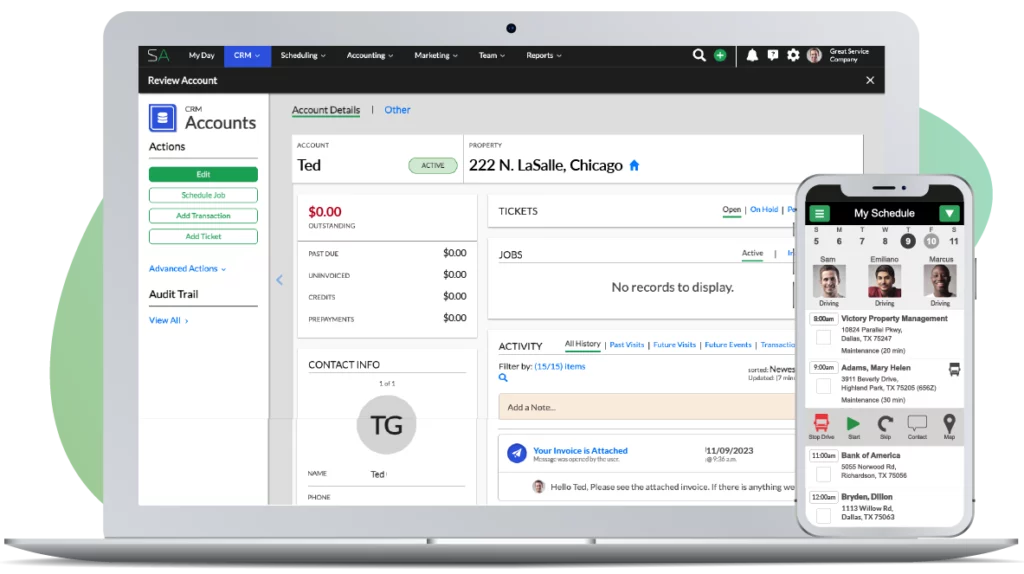Jonathan:
I remember when I graduated high school, freshman year of college. I remember having a conversation, the conversation was, “Man if I could just make 90 grand a year.” That’s probably equivalent to about 130 now. With 90 grand a year, I could pay off my home, I could pay off my car so I could have a good lifestyle, I could buy rental properties. I could build my wealth and have a business. I assumed a business would bring me that 90,000 a year. My view of the world was this. It was not very big. My view of not only money but the size of the company I could build, the amount of adventure I could have in my life, the things I could do, the things I could achieve, the world I could live in with this.
Then as I started building my thing, things, my businesses, I’d meet other people. I’d read more books. I would go mastermind groups. I’d go to speaking events and I’d meet people and my world kept getting a little bit bigger and a little bit bigger. What I’ve noticed is the bigger my worldview is and I still think it’s way too small, the bigger it is, the more I go for and the more I end up getting both from a business standpoint, from a relationship standpoint, from the quality of my team that I get to work with every day, from a financial standpoint, from an adventure in my life standpoint, it just keeps getting bigger and bigger. It’s like every day, you meet another person and you’re like, “Oh my gosh. That’s possible? Wow.”
When you see that, the possibility, then your goal post moves. It gets a little bigger and it moves a little further out and you keep going and that’s what you’re aiming at, that’s what you’re going for and everything you do, the steps you take, the things you learn, the things you create inside your company, the people you hire that have more talent, you keep going for more, more, more because you see the possibility. My old view was this, my new view is this. I theorize in another 10 years my view will be that and that’s what this video is about. It’s a final video from Greg Crabtree and it’s about encouragement, it’s about the possibility. It’s about what’s really out there. You may not see this in your life because you’re not meeting and hanging out with the right people but there are tons of people like this example.
In the very end of this video, you’re going to hear an example and it’s probably from, I don’t know that for sure but I’m going to guess it’s a 15 to $20 million company gross revenue that he’s talking about. Don’t let that discourage you. Don’t say, “Well, that’s not me.” Or, “I don’t really want that.” Or, “That’s not possible,” because you’re thinking and I historically have thought in terms of who I am today and what I know today and we’ve got to be thinking about who we will be tomorrow, what will we know tomorrow because that’s going to define where we end up going. Enjoy.
Greg Crabtree:
One of our classic examples. He’s not only one we’ve had. I mean, we’ve had multiple versions but we call that the guy, summary book, the 14-year overnight success. When we found him, he was doing five million a year in revenue and he made nothing in profit because he was paying himself a $30,000 salary but he’s taking 150,000 in distributions and so essentially if you really treated the distributions like we would a salary, he was making nothing. So he said, “Here’s a deal. We’re going to send your way 180,000 and now you don’t get to take any distributions except for tax coverage until we get your company fully capitalized.” Okay, well, the first year rolls around. He makes 280,000 and he freaks out because he owes 50,000 in tax and we said, “Listen, I knew this day is coming. I got news for you. 280,000 minus 50 is what?” “230.” “Well, 230 I think is a lot better than 170,” because he’d made 180 the previous year and owed 10,000 in tax.
So he was looking at the tax number. I go, “Listen, and I said this in the book, I mean, paying income tax is the truest key performance indicator of wealth creation there ever was. If you don’t pay any income taxes, there are only two possibilities. You didn’t make any money or you cheated and both of those are bad.” So we had this discussion. I mean, probably, I mean, how many of you would have your accountant have this discussion with you but we’re … I mean, I was talking to him about this the same tone. I said, “Listen, I knew this day was coming and we didn’t trust you. We’ve got the 50,000. We had your controller set the 50,000 aside in a savings account so just pay the money and keep going.”
He grumbled and added a few expletives and about the tax system and sent it in. The next year rolls around, he makes 450. The next year rolls around, he makes 750. The next year, he makes 1.2 million. The next year I makes 1.7 million profit. These are all profit numbers. The next year he makes 3.2 million and the next two years after that. So you tell me, I mean, all we did was give him a game plan and a strategy of how to attack the problem and change the paradigm and that’s really I think the opportunity that everybody misses in business is understanding that what you don’t want to be is what Wall Street Journal did an article back in the ’90s about being a single unit Subway franchise and they said, “This really sums it up.” It was like having a job with all the headaches of ownership because you made about $25,000 salary. It was about all that a single unit franchise Subway could actually produce.
They don’t actually sell single unit franchises anymore. You always have to buy multiple units because you have to buy at least six to 10 probably to even make a decent wage as a manager. Because you can only run so many people pass the cash register in a day. So there are basic fundamental laws of business, physics that applies to all these things and naturally what we’ve tried to develop here is giving you a game plan and really a path to say, “If I’ll follow these things and go do excellent service. Take care of my customers. Develop my team.” I tell you, it’s a great way to build wealth, make an impact in the community, provide really good, decent paying jobs and really do some wonderful stuff.
Jonathan:
So what you just heard was all about money. It was all about money stuff. It was all about profit. It’s all about what you extract from the business and put in your pocket. That’s just a piece of the equation in my opinion. There’s the whole family side. What are you doing with your kids? How are you working with your kids? What are you turning your kids into? What kind of relationship do you have with your spouse? Are you having adventure and fun in your life? There are all these other things. The money is just a piece of it. But the money can be an exciting part of it and that’s what you just heard. You head a money example.
So when you hear that, I think you have one, two reactions. One is, “I want that. I can go for that. It’s going to be hard. It’s going to be challenging. But I can do it. I’m going to figure it out.” The other reaction is, “I don’t want any of that. It’s too hard. It’s too challenging. It’s bigger than I would ever want to deal with. Everything about that sounds hard and stressful.” If you’re on the side of the fence that says, “Geez, that would be incredible. That would be awesome. That is what I want to go for. Not just because of the money but because of who I’ll become, what I’ll have to learn, the new version of myself I’ll have to become. The team that I’ll get to surround myself and work with. The impact we’ll have on the marketplace and all these other factors.” If those things are exciting and you’re like, “I want to. I wish I could be that person that could build that company,” then you need to be at SA4.
If you’re the on the other side of the fence, you’re like, “I don’t want any of that. I want one crew. One truck. One team.” I’d love to have you come to SA4 so we could persuade you to think a little bit different but if you’re like, “You know, what I got now, it’s all I ever want in life,” SA4 is kind of for you but SA’s for going big, thinking big, the future, becoming a new version of you, wanting more, identifying strategy, thinking about the marketplace saying, “Who are my competitors? What are the challenges coming? I’m going to transcend all that. I’m going to figure it out. I’m going to learn it, I’m going to solve it, I’m going to hire the people to fix it. I’m going to be the leader in my marketplace.”
“I’m going to take everything that’s coming at me in the future. I’m going to grab it. I’m going to capitalize on it. I’m going to turn it into stuff that benefits my company in a massive way and we’re going to win like we’re going to do cool things in the future. We’re going to have a big impact in the future.” SA4 is Barely two months away. I hope you’d be there. Thanks a lot.
Podcast: Play in new window | Download
Subscribe: RSS



